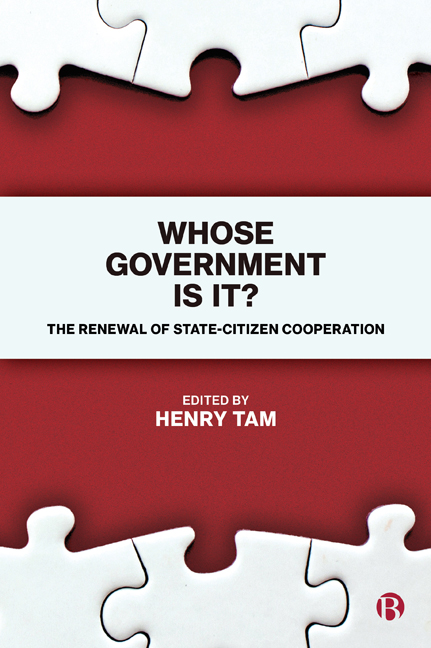3 - The Importance of Collective Control
Published online by Cambridge University Press: 27 April 2022
Summary
If the aim is to build more cooperative relationships between citizens and the state, much depends on how far citizens are willing to engage in the process of change – especially those who are least active and vocal in political decision making.
It is rarely just apathy that makes people reluctant to engage. More often, it is a well-founded scepticism that anything one says or does can make a useful difference – and this feeling is particularly widespread among those who are poor and powerless. It is part of an exclusionary process, driven by unequal power relationships across economic, political, social and cultural domains, and characterised by unjust distributions of resources, capabilities and rights (Popay, 2010, p 295). The problem is intensified when people are invited to engage in decisions – often by well-intentioned public authorities – only to find that nothing changes as a result. At this point, scepticism combines with ‘consultation fatigue’ (Richards et al 2007, p 16), to produce a cynicism about the chances of anything called ‘engagement’ or ‘participation’ being more than a cheap trick. These feelings give rise to two significant barriers to cooperation: people lack confidence in their own ability to make a difference; and they distrust the efficacy of the process (of building cooperation) and the motivations behind it.
Both problems can be traced to the distribution of power and, particularly, control. Degrees of confidence and trust are strongly influenced by how far people control what happens when they engage with the state. Understanding what constitutes control and what enables people to exercise it is therefore vital to renewing state‒citizen cooperation. Whatever the aims or intentions of public authorities, whatever methods of engagement and decision making they employ, they will fail unless they start from here.
In this chapter I focus first on control: how it is defined, its component parts, how it is generated and the implications for systems change. I then turn to the concept of the commons and the process of commoning – by which I mean claiming and controlling a range of resources that are essential for meeting human needs – and explore the implications for policy and practice.
Defining control
The terms ‘power’ and ‘control’ are sometimes used interchangeably.
- Type
- Chapter
- Information
- Whose Government Is It?The Renewal of State-Citizen Cooperation, pp. 39 - 56Publisher: Bristol University PressPrint publication year: 2019

